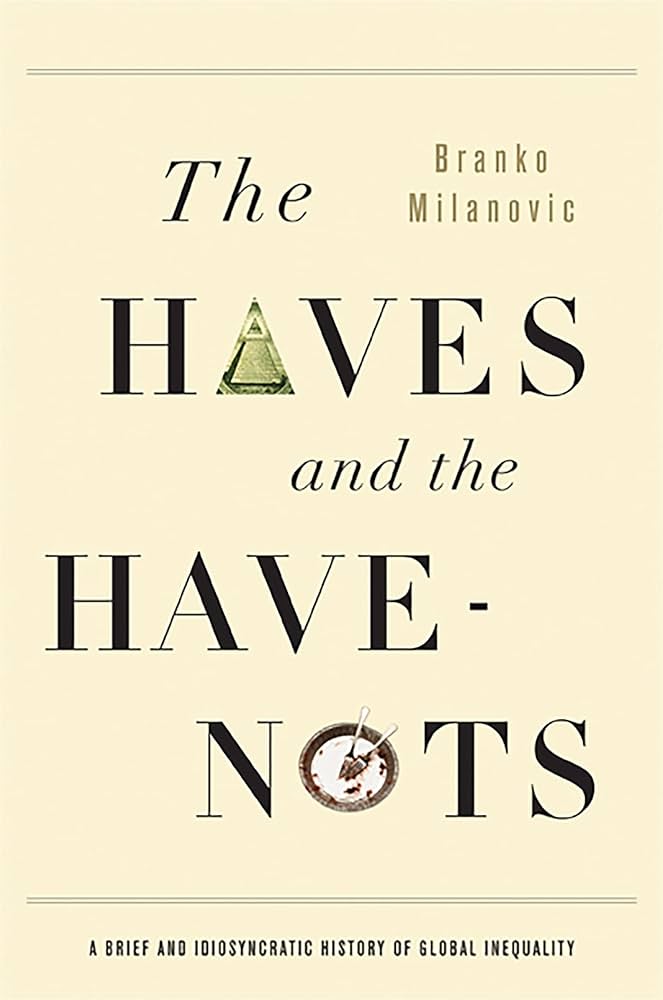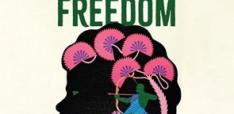Contemporary Global Literature Certainly Does Track Inequality

In The Haves and Have Nots, Branko Milanovic deftly wielded 19th-century novels to illuminate new historical aspects of economic inequality. Yet, his recent claim that the novel's engagement with inequality has declined overlooks a rich body of literature that incisively maps inequality's shifting fault lines.
In a thought provoking Global Policy editorial (2020), Branko Milanovic points to the power of the novel to offer nuanced, qualitative insights into lived experiences of inequality. Reflecting on his analyses in The Haves and Have Nots (2014), in which he used Jane Eyre and other novels to productively aid his economic analysis of 19th century Europe, Milanovic argues that fiction can complement economic analysis not only by portraying the human side of inequality, but, more importantly, by maintaining an authentic openness to history to explore potentials of the given era.
However, Milanovic’s subsequent claim that the novel’s capacity to meaningfully engage with social inequality has declined since the nineteenth century warrants closer scrutiny. This argument, while perhaps applicable to a narrow slice of canonized Western literature, overlooks a rich body of twentieth and twenty-first century global fiction that incisively tackles inequality.
 Drawing on John Lukacs’ The Future of History (2011), Milanovic’s argument posits that the dissolution of traditional class structures through the twentieth century led to a crisis in the novel’s capacity to explore social themes. Yet it is crucial to note that Lukacs' study is limited to canonized, Western authors. But even within Western literature, the literary techniques that emerged in response to a gradual dissolution of traditional class structures did not preclude major strands of fiction through the twentieth and twenty-first centuries from using both conventional and experimental literary means geared toward mapping social landscapes.
Drawing on John Lukacs’ The Future of History (2011), Milanovic’s argument posits that the dissolution of traditional class structures through the twentieth century led to a crisis in the novel’s capacity to explore social themes. Yet it is crucial to note that Lukacs' study is limited to canonized, Western authors. But even within Western literature, the literary techniques that emerged in response to a gradual dissolution of traditional class structures did not preclude major strands of fiction through the twentieth and twenty-first centuries from using both conventional and experimental literary means geared toward mapping social landscapes.
Even during the high modernist era, which is often noted for privileging the individual over the social, authors like James Joyce and Virginia Woolf moved away from explicit class narratives, but these were not the dominant literary modernisms of their time. In fact, Simon Cooper (2020) and others have shown a substantial link between modernist form and the proletarian novel, which centered on class struggle and inequality, precisely during the high modernist era of the 1920s and 1930s. A sort of hybrid between experimental technique and big-picture social concerns, the trenchant class analyses of John Dos Passos' USA Trilogy (1930, 1932, 1936) exemplifies modernism's sustained engagement with social issues.
Still, most problematic is Milanovic’s outsourced conclusion on literature today:
‘I have not followed contemporary literature (contemporary meaning, written in the past 30 years) partly for that very reason [a lack of attention to the social], so I relied more on the judgment of others. But they too seemed at a loss of finding novels from which one could glean social inequality, or even more generally social issues linked with inheritance, position in society, class distinctions, and even money. So we ended with a very meager yield.’ (Milanovic, 2020)
On the contrary, Claire Pignol has recently shown that the contemporary European novel can offer valuable insights into economic experiences. Pignol analyzes works by Svetlana Alexievich, Georges Perec, and Édouard Louis to demonstrate how their novels “take the reader inward and reveal what is at stake in the desire for wealth.” (2022, 31). She proposes that we should approach literary texts as complementary to economic thought to see how they reveal “truths of experience, which can only be shown through the journey of a subject” (2022, 26).
Still, an even more pressing issue is that of scope — a narrow Western canon seems to have led Milanovic’s literary contacts to overlook the myriad ways global literatures have traced the historically shifting fault lines of inequality. Novels from peripheral regions of the world have long offered illuminating accounts of unequal development and stark divisions wrought by global capitalism. In Combined and Uneven Development (2015), the Warwick Research Collective's analysis of novels from the global periphery underscores how these texts not only depict inequality, but capture its disorienting, contradictory logics through innovative narrative strategies. One standout chapter examines Tayeb Salih's Season of Migration to the North (2009), which illuminates the material and psychological consequences of British colonialism in Sudan by weaving together the protagonist's experiences in mid-20th century Europe and postcolonial Africa. Another incisive analysis focuses on Victor Pelevin's The Sacred Book of the Werewolf (2008), a fantastical, genre bending narrative that satirizes the disorienting transformations of post-Soviet Russia.
If the ‘classic novel’ to which Milanovic favorably refers means realism, then Amitav Ghosh’s Ibis trilogy (2009, 2012, 2016) might be the best example of twenty first century non-Western historical literature centered on inequality in a non-Western region. In Narratives of Inequality: Postcolonial Literary Economics (2017), Melissa Kennedy argues that postcolonial fiction provides valuable insights into the structures and experiences of economic inequality across different historical periods and geographical contexts of capitalism. She analyzes novels by Chinua Achebe, Chimamanda Ngozi Adichie, V.S. Naipaul, Amitav Ghosh, Aravind Adiga, Sherman Alexie, Monica Ali and others to contend that analyzing novels from an economic perspective can significantly contribute to critiques of the inequality produced by global neoliberalism.
Milanovic's neglect of global literature's engagement with inequality is all the more puzzling given his own emphasis on the international division of labor. In Global Inequality: A New Approach for the Age of Globalization (2016), he underscores how the Industrial Revolution's gradual global wealth divide eclipsed class differences within countries, making a person's citizenship the prime determinant of their economic fate. Notably, Milanovic invokes Frantz Fanon to argue that the colonizer-colonized dichotomy, rather than Karl Marx's national class distinctions, best captures this new world order: ‘[t]he contrast drawn by Frantz Fanon between the colonizers and the colonized,’ Milanovic writes, ‘represents that type of world best—as opposed to the world with which Marx dealt, for practically his entire life, which was the world of class’ (129). Fanon's prescient grasp of inequality's global dimensions makes Milanovic's literary blind spot even more glaring. After all, the surge of peripheral and postcolonial literatures that led to the rise of postcolonial literary studies coincided precisely with Fanon's life and work. If we take seriously the need for a global lens on inequality, as Milanovic suggests, then surely we must also attend to how literature from colonial and postcolonial regions registers that inequality.
Expanding our purview beyond a Western canon reveals several traditions of global fiction that probe the complexities of inequality in our unevenly developing world, mapping divisions of the global and local, the urban and rural, the modern and traditional, and the wealthy and impoverished.
Milanovic ends his editorial by asking will ‘the class analysis in economics and the classical novel make a comeback?’ While the nineteenth century Victorian novel is unlikely to return, we have no scarcity of contemporary and twentieth century novels doing class analysis on a global scale in a massive variety of ways. The remaining question is whether economic analysis will catch up.
Kyle Woodend is Assistant Professor of English at CHA University in South Korea while doing a PhD with the University of Bristol. His research examines the capacity of the novel as a form to articulate deep, structural changes within social, political, and economic systems.
Photo by Pixabay
References
Cooper, S. (2020) Modernism and the Practice of Proletarian Literature. Cham: Palgrave Macmillan, doi:10.1007/978-3-030-35195-3.
Dos Passos, J. (1930) The 42nd Parallel. New York: Harper & Brothers.
———. (1932) 1919. New York: Harcourt, Brace and Company.
———. (1936) The Big Money. New York: Harcourt, Brace and Company.
Ghosh, A. (2009) Sea of Poppies. London: Picador.
———. (2012) River of Smoke. London: Picador.
———. (2016) Flood of Fire. London: Picador.
Kennedy, M. (2017) Narratives of Inequality: Postcolonial Literary Economics. Cham: Palgrave MacMillan. doi: 10.1007/978-3-319-59957-1.
Lukacs, J. (2011) The Future of History. New Haven: Yale University Press.
Milanović, B. (2012) The Haves and the Have-Nots: A Brief and Idiosyncratic History of Global Inequality. New York: Basic Books.
———. (2016) Global Inequality: A New Approach for the Age of Globalization. Cambridge, MA: Harvard University Press.
———. (2020) 'Was Novel Born and Died with the Bourgeois Society?', Global Policy, 9 October. Available at: https://www.globalpolicyjournal.com/blog/09/10/2020/was-novel-born-and-died-bourgeois-society (Accessed: 4 June 2024).
Pelevin, V. (2008) The Sacred Book of the Werewolf. Translated by A. Bromfield. New York: Viking.
Pignol, C. (2022) 'Economic Thought and Novels: What Can We Expect from the Economy?', in Myrogiannis, S. and Repapis, C. (eds.) Economics and Art Theory. London: Routledge, pp. 17-32.
Salih, T. (2009) Season of Migration to the North. Translated by D. Johnson-Davies. New York: New York Review of Books.
The Warwick Research Collective (WReC). (2015) Combined and Uneven Development: Towar


